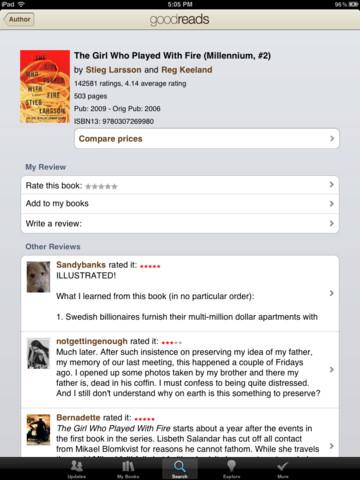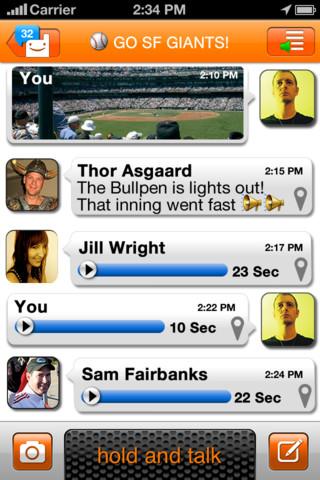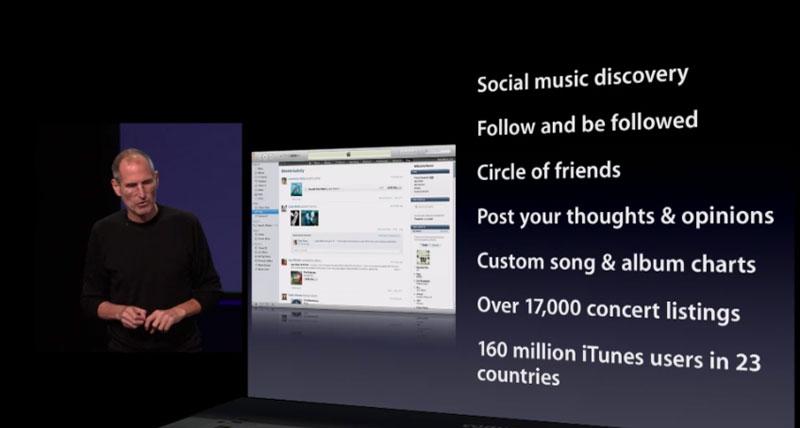Facebook App Center delivers a visible social network for iOS apps
Unlike Apple's iOS App Store (or its direct competitors including Google Play and Amazon Appstore for Android-based platforms, RIM's Blackberry App World or Microsoft's Windows Phone Marketplace), the Facebook App Center doesn't exist primarily to sell apps.
Instead, it aspires to direct the attention of its millions of social network members to Facebook web apps. That positions App Center as more of a competitor to Google's Chrome OS, which similarly hopes to shift users from conventional desktop software to web apps operating within a web-based platform plugged into a particular social graph.
However, most Facebook apps don't exist only in the bubble of Facebook itself. A variety of apps are actually cloud based services that interact with Facebook to tap into its rich social network features.
Goodreads taps into Facebook
Many of the cloud services that work as Facebook apps also exist as iOS apps, allowing mobile users to jump out of Facebook and into a standalone app that connects with Facebook on the back end. One example is Goodreads.
From within Facebook, users can interact with Goodreads web app to highlight books (physical or electronic) they are reading or have read, and leave reviews. Facebook friends can comment on or review and track each other's progress in reading new books.
Goodreads also exists as an iOS app for iPhone and iPad (as well as having an Android counterpart), allowing iOS users to interact with the Facebook community both on and off of Facebook itself. The Goodreads app is free on both iOS and Facebook; the service is supported by advertising (and to a smaller extent, affiliate links to books users buy directly though the app).
Unlike other e-reader apps (including Apple's own iBooks), Goodreads provides social network features by piggybacking on Facebook and plugging into a user's existing group of friends.
Voxer, Nike+ apps similarly leverage Facebook for social links
Voxer, an iOS walkie talkie app that allows users to send messages to friends or groups of friends using push to talk voice or as text or picture messaging (below left), similarly connects to Facebook for single sign on authentication, allowing users to rapidly get started and immediately begin interacting with their existing social circle without managing another new account.
Voxer allows users to send voice messages via any network connection, which are then stored temporarily on the cloud. Friends receive notifications when they receive a voxer message, and can immediately launch the app and begin listening to messages even as they're being recorded. As a conversation builds, users on both ends can review what was said, fast forward through speech recordings, and trade photos and text messages. The app is currently free.
Nike+, which is already bundled on iPhone 3GS and later using its built-in accelerometer, was also represented at the Facebook App Center launch event to demonstrate its premium Nike+ GPS app, which costs $1.99 (above right). The extra two bucks buys users GPS support, as well as social integration features.
Users can now post their runs to Facebook as they begin, and anytime their social circle "Likes" or comments on their post, the runner hears cheering to encourage their progress. After running, users can post their runs, join a challenge and set goals.
Apple's flat Ping
While Apple hoped to launch its own social features within iTunes with Ping in late 2010, users weren't quick to embrace the new service in large part because it lacked Facebook integration, leaving it isolated and useful only for tweeting out one's iTunes purchases.
Apple initially hoped to link Ping to Facebook, but Facebook itself appeared hesitant to give Apple access on its own terms. Or in the words of Steve Jobs, Facebook demanded "onerous terms" just before Apple deployed Ping that prevented the two companies from being able to work together.
On stage at last month's "All Things Digital" conference, Apple's chief executive Tim Cook acknowledged that while Apple had "tried Ping," the lackluster demand for it from customers resulted in the company not wanting to "put a lot of energy into" the service.
At the same time, while noting that "Apple doesn't have to own a social network," Cook added, "But does Apple have to be social? Yes." He further cited Apple's existing Twitter integration in iOS and its already announced integration in OS X Mountain Lion, as well as iMessage and Game Center features as examples of Apple's interest in being socially connected.
"You'll see more things like that in the future," Cook said. And when asked if Apple was ready to kill its Ping service, Cook answered, "Will we kill it? I don’t know. We’ll look at that."
Cook also referenced a "very solid" relationship with Facebook and said to "stay tuned" for news of how Apple and Facebook would continue to work together.
While Apple may announce the beginnings of those plans at next week's WWDC, Facebook is already working to extend the reach of its social network by partnering with existing mobile apps to give them socially connected features. In fact, Facebook's rush to deploy its new Apps Center just days ahead of WWDC suggests that the company wanted to make a splash before Apple reveals its hand.
 Daniel Eran Dilger
Daniel Eran Dilger














 Wesley Hilliard
Wesley Hilliard
 Andrew Orr
Andrew Orr



 Amber Neely
Amber Neely

 William Gallagher
William Gallagher







